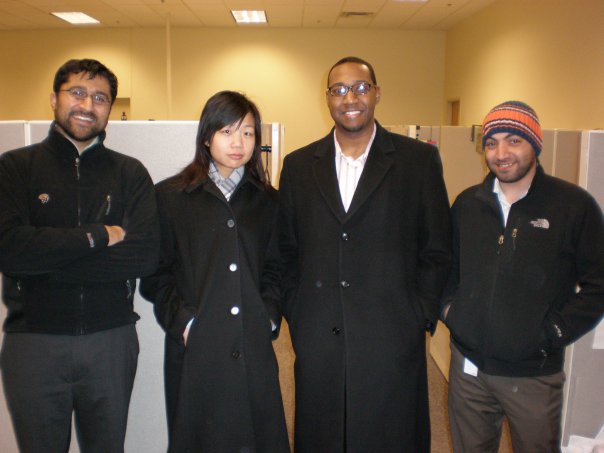In my previous life as an IT Consultant, I once volunteered to present at a “community event.” It was an initiative on something green-related (I think) and I essentially needed to deliver the contents of a powerpoint presentation that was already created. Easy.
In terms of promotion, things like this looked good. The main reason I volunteered was to challenge myself however, and to face my fear of public speaking. I wasn’t afraid to speak in front of others (I actually enjoy it), it had just been a while since I had gotten any practice.
The night before the community event rolls around, and I find myself up at ungodly hour, Skyping with a friend who lives in Europe, and generally avoiding anything that resembled preparation and proper rest. I had endured many situations like this before, and generally relied on caffeine to see me through.
I woke up in the morning feeling as drained as one might expect, and made my way downtown to the venue without breakfast (hoping to score some of the delicious (gag) croissants that go hand in hand with events like these, perhaps?).
[fast forward to go-time]
As I stepped up to the podium to speak, I was feeling good.
Almost immediately, however, things started going sour.
I stumbled over my words.
My palms started sweating.
My presentation was disjointed, and the tension in the room was building.
At one point, probably five minutes into the presentation, my mind went completely blank.
The room started spinning, my vision went blurry, and I remember calmly wondering what it would be like to pass out and observe (from what felt like a million miles away) the hysteria that would ensue. I clutched the podium hard, and lowered the microphone.
I managed to laugh, smile, and apologize as I slipped further and further away from a strong mental footing.
One one-thousand, two one-thousand…
I don’t recall the turning point, but I remember taking a deep breath and composing myself.
Three one-thousand, four one-thousand…
I glanced up at my powerpoint slide and read what it said. Amazingly, I completed a sentence without bringing shame to my English teachers’s good names.
I felt my balance returning, and pressed on.
I got through the presentation, and actually finished strong. My manager was on hand to witness the whole thing, and immediately congratulated me for recovering. He told me that the presentation was solid overall, and I felt like he meant it.
Several others followed suit, and shared gave me various versions of, “that took guts.”
To this day, I wince at what I must have looked like for those painful moments. And what’s sad is that the solution would have been so simple: a few minutes of preparation every night before the event, a good night’s rest, and breakfast.
I don’t regret what happened.
I needed to feel the failure. I needed to feel the embarrassment. I needed to feel the pain.
It won’t happen again.
